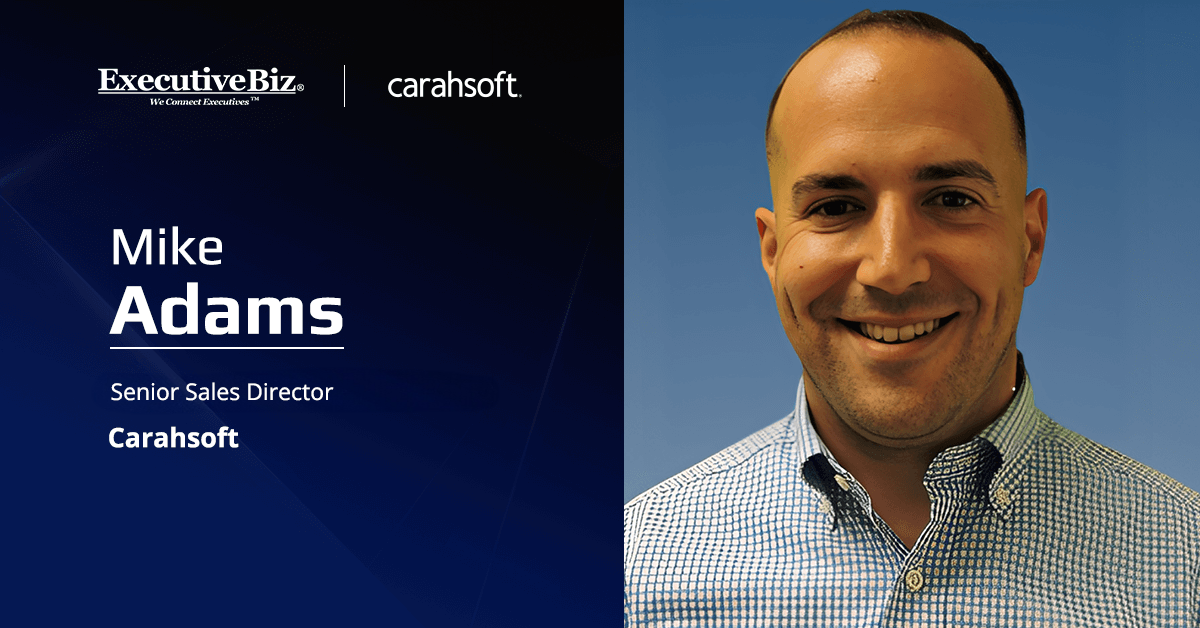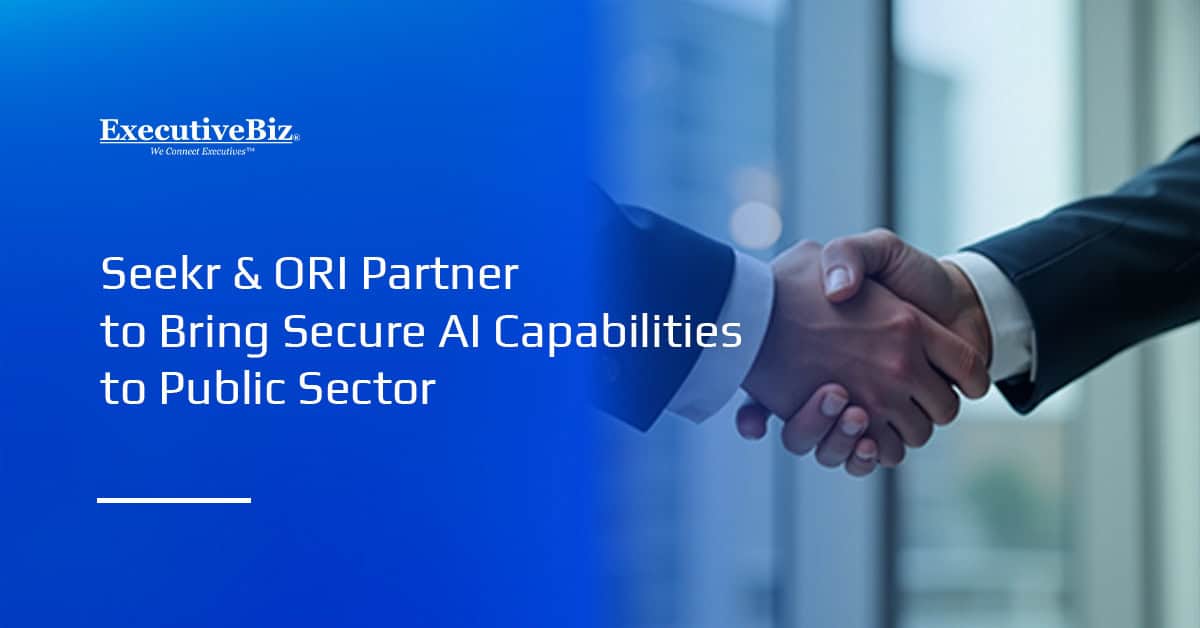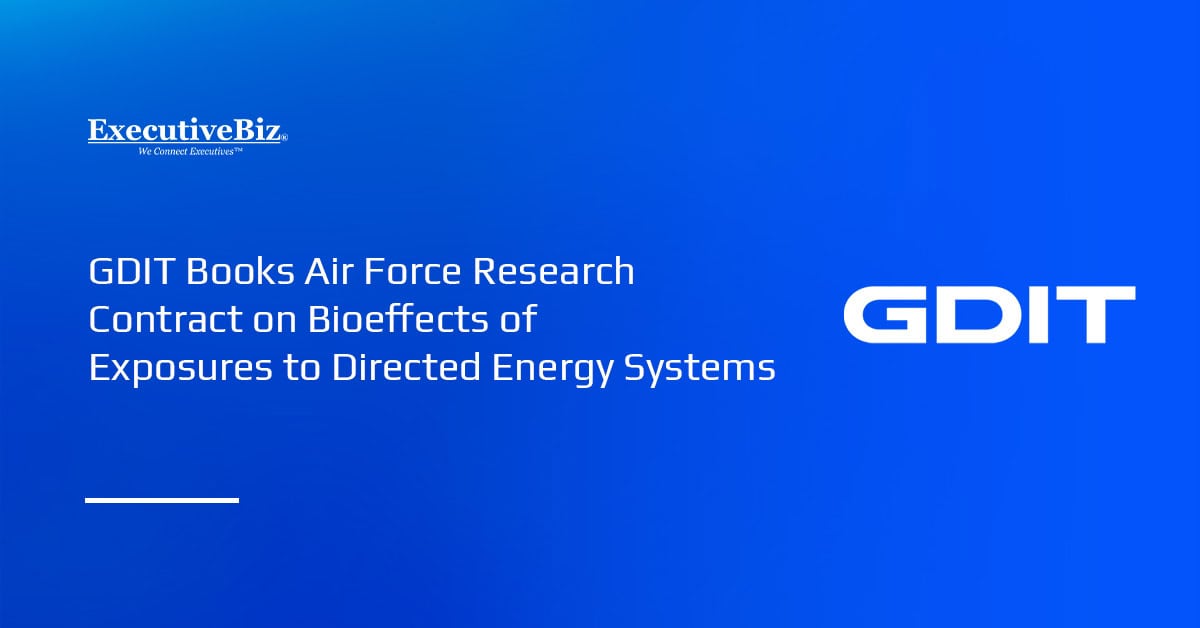The artificial intelligence conversation in government has shifted from speculation to execution. What once centered on potential use cases and ethical guardrails now focuses on scaling real-world implementation. As agencies across federal, state, local and higher education move from concept to capability, they’re driving unprecedented demand for infrastructure, vendor support, and acquisition strategies that can deliver AI at speed and scale.
Carahsoft is right in the middle of that pivot. Its fast-growing AI vertical is helping agencies make the leap from pilot projects to enterprise deployment. ExecutiveBiz caught up with Mike Adams, Carahsoft’s AI program lead, to discuss what’s changed in the last year, how the company is responding and where public sector AI is headed next.

Learn how AI is enabling intelligence community missions during a fascinating panel session at Potomac Officers Club’s 2025 Intel Summit on Oct. 2. The cross-industry conversation will feature representatives from GovCon, federal agencies, the R&D community and more. Don’t miss this IC-focused GovCon conference!
ExecutiveBiz: AI has been the buzzword in government tech circles for the last few years. How do you see it fitting into broader strategy now?
Mike Adams: AI was something agencies were watching, testing or piloting. It dominated conversations but not execution. That’s changed. Now, AI is foundational to how government agencies think about efficiency, modernization, national security and defense.
We’re seeing that shift play out across sectors, and it’s part of nearly every strategy conversation. Even tools that aren’t branded as AI products — like enterprise platforms or analytics solutions — are increasingly AI-enabled behind the scenes.
That’s exactly what the White House’s AI Action Plan reinforces. It doesn’t treat AI as a niche capability. It frames it as essential to national security, operational efficiency and global competitiveness. The plan encourages agencies to buy, not build, to speed adoption — and it pushes for streamlined acquisition, centralized tools and shared infrastructure.
All of that is accelerating demand. Agencies want practical roadmaps, scalable tools and infrastructure that’s ready to support enterprise-level implementation.
EBiz: How is that momentum showing up in your work at Carahsoft?
Adams: In the past year, we’ve onboarded nearly 100 new AI vendors in areas like agentic and generative AI, modeling and simulation, and computer vision. Some are NVIDIA Inception partners, but others came through venture capital introductions. As government customers deploy AI, they’re looking for the right partners to move quickly and that means a lot of different capabilities.
The AI market in general is going to have significant movement as some of the larger players buy startups or invest in companies to get their hands on promising talent. Acqui-hires are common in this space. We expect market shifts to continue as it matures and the stakes get higher.
EBiz: How is Carahsoft supporting agencies on AI education and adoption?
Adams: We’ve covered how we’re building capability, but we also want to build the community. We expanded our AI for Government Summit to a full-day event based on last year’s feedback, and it doubled in size with nearly 1,000 people in attendance. People also can’t get enough of the webinars we host with OpenAI, so we’re mapping out a more formal weekly in-person training series at Carahsoft focused on government use cases and hands-on learning.
We’re also supporting partners — large systems integrators and smaller vendors — who are building AI labs and sandboxes so agencies can test tools in secure, low-risk environments. We want people to get hands-on with the tech. That kind of enablement is key to moving from policy to practice.
Lastly, expect to see a lot more training events and activities at our Conference and Collaboration Center in Reston, Virginia. From technical hands-on-keyboards training, to higher level use-case learning series. We all have a role to play in helping the government adopt AI successfully.
EBiz: Can you share an example of how that policy-to-practice shift is taking shape?
Adams: First, we are seeing agencies invest more in AI infrastructure, from hiring talent, to building out AI datacenters, to modernizing systems to get their data AI-ready. Second, rapid adoption is not just a buzzword anymore. The General Services Administration is working on getting AI in the hands of the government quickly. Their OneGov initiative will give agencies streamlined access to tools such as OpenAI’s ChatGPT, Google’s Gemini and Anthropic’s Claude through the Multiple Award Schedule — in other words, the tools that are household names.
As part of that effort, OpenAI is offering ChatGPT Enterprise for $1 per agency for federal users for one year. That’s huge. It’s an opportunity for public servants to play with the tools themselves and figure out where they make sense to use. Agencies will also be able to purchase advanced capabilities — like multimodal models — through “advanced model units,” giving them flexibility to scale as needed. We expect to see more companies with OneGov offers in the near future.
EBiz: What’s your advice to agencies navigating this moment?
Adams: Agencies don’t need to adopt AI for its own sake; they need to adopt it with purpose. We’re seeing real usage now, so agencies need to be ready. Every project has, or should have, an AI component. If your tools aren’t leveraging the best tech, you risk falling behind.
Click here for more information on Carahsoft’s AI portfolio and upcoming AI events.





